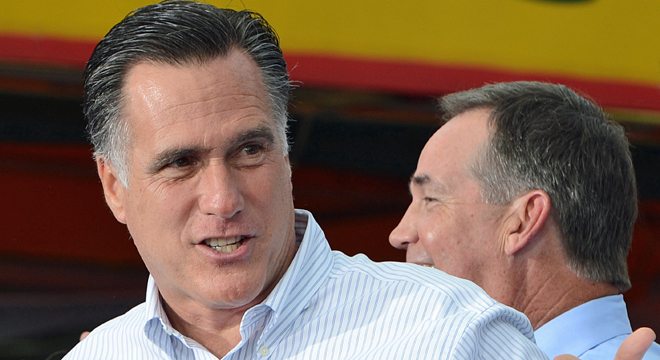Josh already noted the strange case of this substantially rewritten New York Times story, which seems to have dropped some of the writers’ key reporting.
That’s a very odd story of its own. But it (both the original version and the updated one) also has a thematic quality that badly obscures what Romney was up to on Tuesday night.
Here’s how the original version of the story reported Romney’s statement:
“It’s disgraceful that the Obama administration’s first response was not to condemn attacks on our diplomatic missions, but to sympathize with those who waged the attacks,” said the statement, issued about 10:30 p.m.
But by Wednesday morning, as the sequence of events and the scope of the tragedy in Benghazi became more clear, Mr. Romney’s initial statement and ensuing comments were coming under attack as clumsy at best.
And here’s the update:
As soon as Mr. Romney landed, he was updated on breaking developments. He personally read and approved his campaign’s statement before it was sent out at 10:10 p.m. Tuesday. “It’s disgraceful that the Obama administration’s first response was not to condemn attacks on our diplomatic missions, but to sympathize with those who waged the attacks,” it said.
The resulting episode was perhaps the most vivid confrontation over events abroad since the general election began taking shape, and it ended up putting Mr. Romney on the defensive as he sought to define his differences with the president and demonstrate his bona fides as a potential commander in chief.
Both versions convey an image of Romney as at worst maybe like a hapless court jester who woke up in the middle of a sword fight. Several of the big wrap pieces on yesterday’s contretemps have a similar quality, but I’m picking on the Times piece because it omits a key piece of Romney’s original statement.
“I’m outraged by the attacks on American diplomatic missions in Libya and Egypt and by the death of an American consulate worker in Benghazi. It’s disgraceful that the Obama Administration’s first response was not to condemn attacks on our diplomatic missions, but to sympathize with those who waged the attacks.”
It’s in the timeline, too. Romney knew an American official had been killed when he issued his statement. And it doesn’t take a very close textual reading to recognize that he’d accused President Obama of sympathizing with the people who killed Americans. Or at that point one American.
After a night’s sleep Romney awoke to find that more people had been killed than he first thought, including an ambassador. But the deadly nature of the attack in Libya wasn’t in doubt when he dropped the statement. And he’d already crossed the Rubicon into very ugly territory. That part is getting whitewashed.








